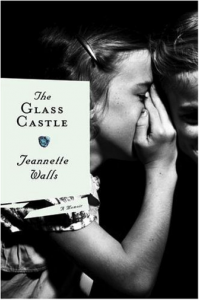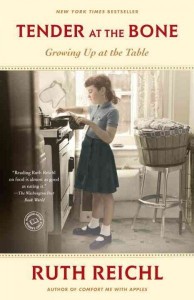January 17, 2005
ISBN: 074324754X
Scribner, New York
“It was the sort of knowledge that kept you on your toes”:
Jeannette Walls’ The Glass Castle: A Memoir
by Rebecca Victoria Ramirez
“What I did know was that I lived in a world that at any moment could erupt into fire. It was the sort of knowledge that kept you on your toes,” writes Walls in the first few pages of her memoir. Some of Walls’ earliest memories are of a fire that engulfed her, running up the tutu-like skirt of her pretty pink dress, as she stood on a stool, hovering over her family’s stove, boiling hot dogs. She was only three years old. Her mother, Rose Mary, a self-proclaimed artist, sat just a room away, painting. “Why spend the afternoon making a meal that will be gone in an hour,” she’d often ask her children “when in the same amount of time, I can do a painting that will last forever?” Walls’ childhood was one ruled by an emotionally-absent mother and an alcoholic father, who instead of parenting their four children, more often than not ignored and neglected them.
If ever they did provide for their children it was by virtue of some sort of thievery. And often their crimes included the children’s participation. “Mom’s plan was for her and Maureen to go into the dressing room . . . with an armful of new clothes for Maureen to try on,” Walls writes. “When they came out . . . Lori, Brian, and I would create a ruckus to distract the clerk while Mom hid a dress under a raincoat she would be carrying on her arm.”
Consistently creditors caught up with the Walls family, and the children, acclimated to this lifestyle, were always on point when their father announced it was “time to skeedaddle.” They gathered the few belongings they could carry escaping into the dark of night. After years of dead-end jobs and countless “skeedaddles” from one town after another, Rex Walls, wife and kids in tow, returned to his hometown of Welch, Virginia. Rather than the contentment one might expect to find in their father’s hometown, what followed were more years of discontent. Rex and Rose Mary purchased a dilapidated house lacking electricity and running water. The children, consequently, were reared in a home abundant in filth, deprived of food, warmth, and sanity.
Despite the volatile childhood that unfolds within the pages of her memoir, Walls’ does not portray her parents as monsters. Rather, she describes them as she saw them, through the eyes of a child. The portraits Walls paints of each member of her family are vivid: each with their own voice, demeanor, and personality. Readers will come away from this memoir feeling as if they’ve come to know Rex, Rose Mary, Lori, Brian, Maureen, and Jeanette herself. There is nothing refined about the words that fall from the lips of innocence onto the page of Walls’ memoir. And so as readers we find that what remains is a story of unadulterated love within a family.
Rebecca Victoria Ramirez resides in Northern California with her partner, children, and an assortment of pets. She earned her BA in English May 2013 and will earn her MFA in Creative Writing January 2016.





